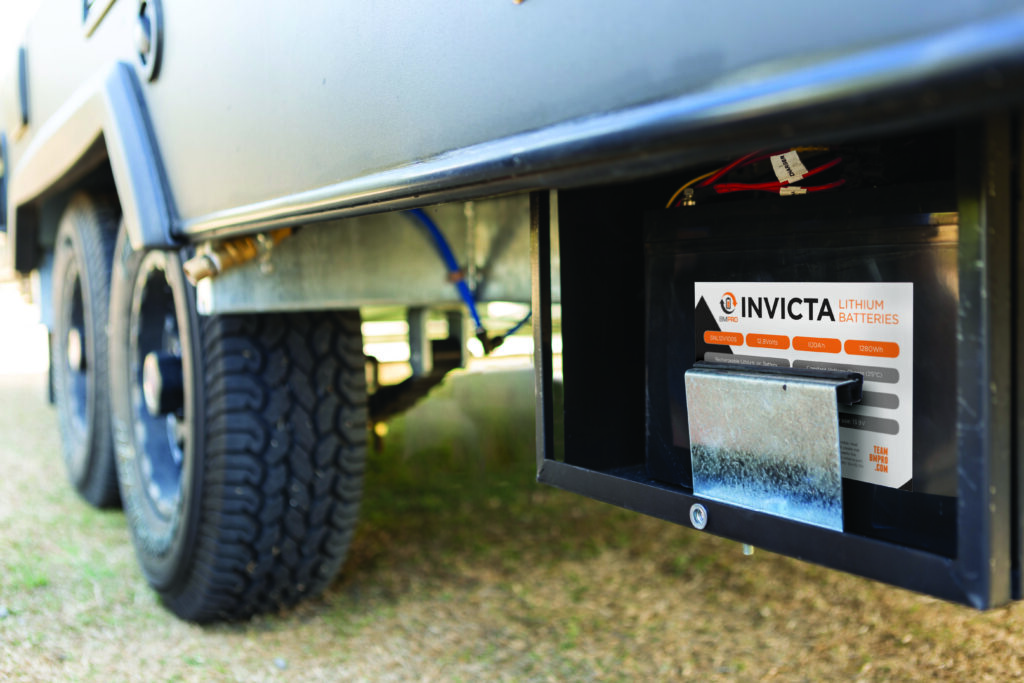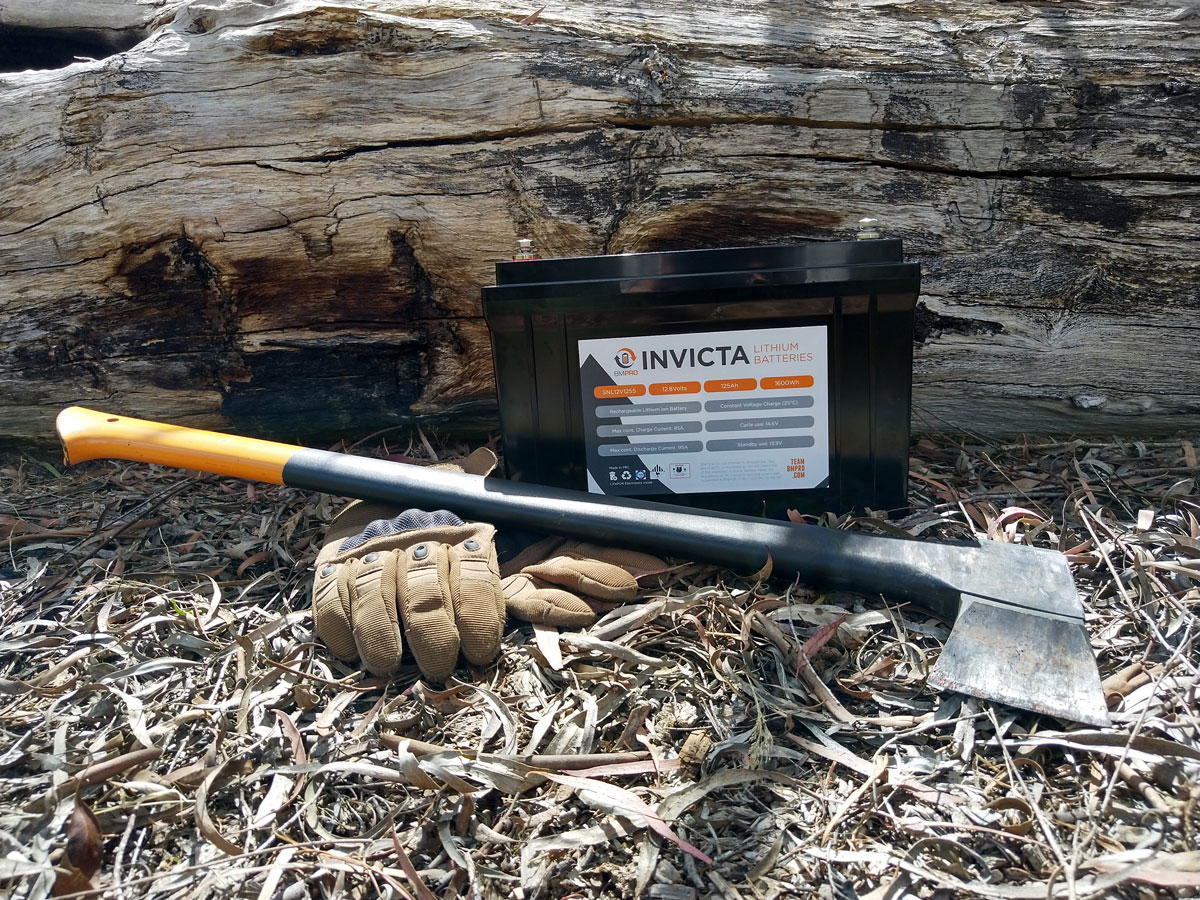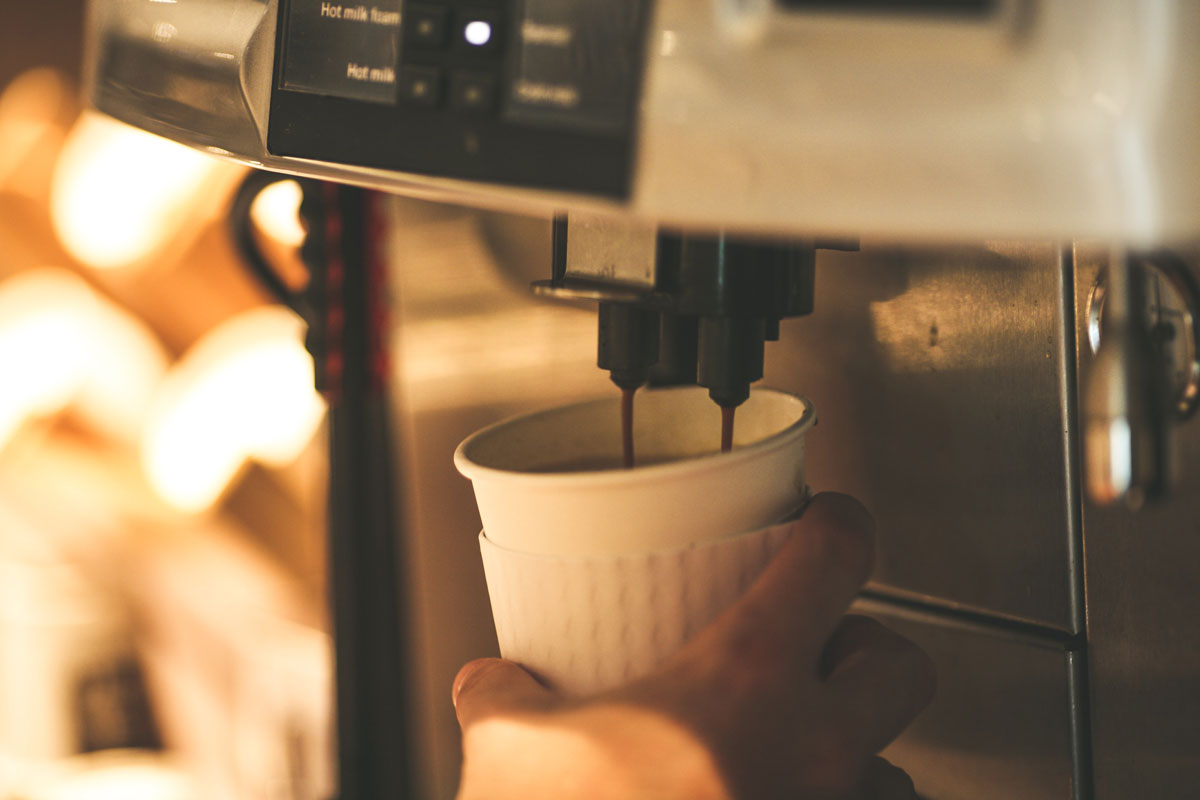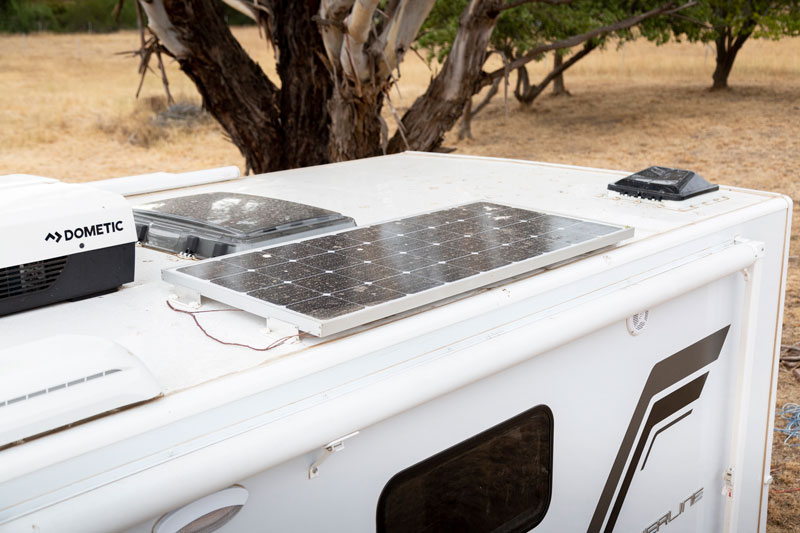
LITHIUM BATTERY GUIDELINES TO AS/NZ3001.2:2022
This is a guide to help understand the requirements of the new standard in relation to lithium battery
Hi 12V Guru – love the idea of what I hear about inverters but my research tells me I need to be careful with my battery setup – can you explain why? Thanks.
Mick Saluty, FNQ

If you’ve been off the beaten track, odds are you’ve heard of an inverter. An inverter is the holy grail of camping accessories, allowing you to use your most prized appliances anywhere on the planet.
Although inverters allow you to have a cappuccino in the middle of the Simpson Desert, they also bring with them a range of complications. With all this being said, it’s a must-have accessory for any camping setup. With some forward planning and thinking, you’ll be set and having the adventure of a lifetime.
Including an inverter in your setup means increased battery usage which calls for increased energy storage requirements. The first positive of inverters is they allow you to use a more extensive range of appliances wherever you are. This flexibility can provide you with that little bit of extra comfort that makes a world of difference to your holiday.
This point of flexibility and ease of use can lead straight to excessive battery usage.
Appliances that run 240v tend to pull much higher amounts of power than their 12v counterparts.
Your last cup of real coffee never tasted so great until you ran out of power hundreds of kilometres away from civilisation.
In saying that, if you’re looking to take some of your ‘exotic’ appliances camping with you, I recommend you evaluate your batteries’ capacity. Should you need to invest in a new battery setup, I would look no further than deep cycle lithium batteries due to their extensive performance. If you’re unsure how much storage you need, chat with your 12V expert about what you are ideally wishing to power and for how long and they should be able to create an energy map of your requirements.

The effect an inverter has on your battery life is without a doubt the most significant point of consideration of all. The power that an inverter draws from your battery dwarfs that of 12v appliances. Therefore, it can have damaging effects on your battery, depending on your setup.
As I’m sure you’ve heard from many battery experts, while investing in lithium may be expensive, it’s well worth it in the long run. Investing in high-calibre lithium batteries is especially necessary when using inverters, more so when using higher powered 3000w inverters.
Different batteries have different draw rates, which are considered safe and don’t damage a batteries life. These draw rates and depth of discharge become much more critical when using inverters. For instance, AGM batteries have a maximum recommended draw rate of 30% of their capacity per hour, 25% for gel batteries, 20% for wet or flooded cell batteries, and a whopping 95% for lithium.
Drawing either too many Amps at one time or for too long will damage a lead acid battery irreversibly.
To maximise the longevity of a lead acid battery it is recommended only discharging to 50% of remaining capacity. The higher the amperage drawn the faster it will reach this cut-off level. The major difference is that with Lithium you can discharge at 3x this rate and down to around 5% remaining capacity.
In summary this means for small AC requirements a 1000W inverter with a lead acid may be fine but if you are looking to power microwaves and hair dryers everyday it is best to step it up and setup with Lithium batteries and a 3000W inverter.

Having an inverter allows you to feel more at home, use more appliances and add just that little bit of extra comfort to a holiday. If you’re willing to invest in an inverter, I recommend you invest in lithium too, so the stress of damaging your batteries no longer looms overhead.
Like this post? Share it!

This is a guide to help understand the requirements of the new standard in relation to lithium battery

Looking for more Power? Our 12V Guru discusses the key elements you need to know when upgrading a 12V system

Solar Panels installed on your vehicle roof? Our 12V Guru discusses how to optimise their performance in place of buying more panels

© 2020
2 thoughts on “12V Guru – Inverters with Batteries”
Should one put an battery isolation switch between battery and inverter?
Hi Wim,
It may not be required as most inverters have an on/off switch. But for peace of mind, it wouldn’t hurt to do so.